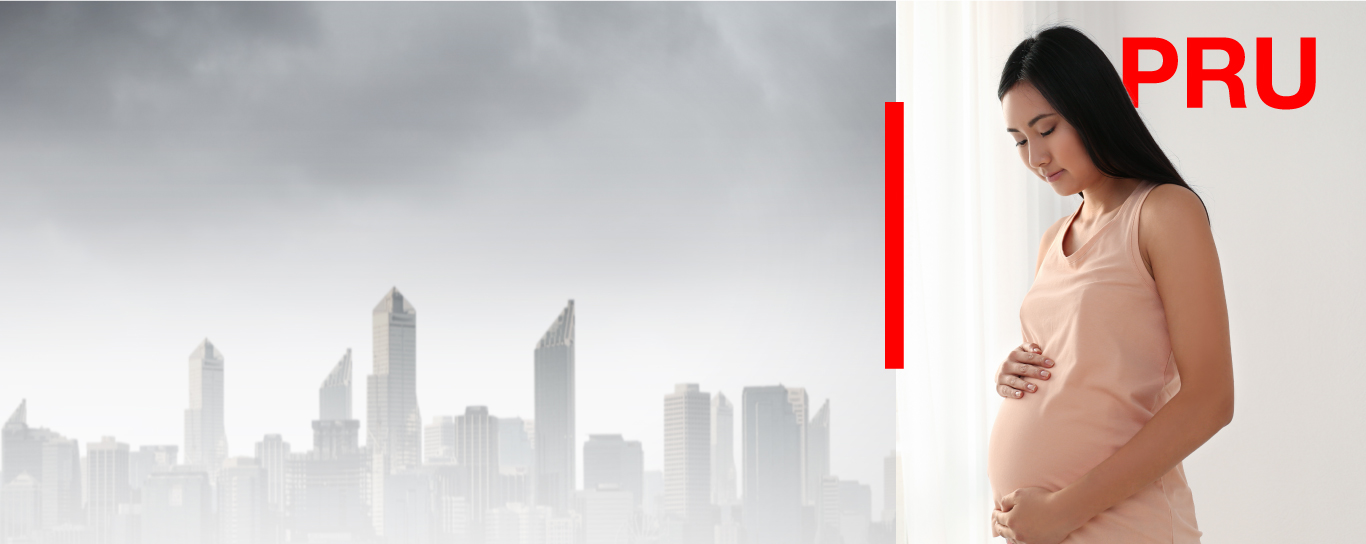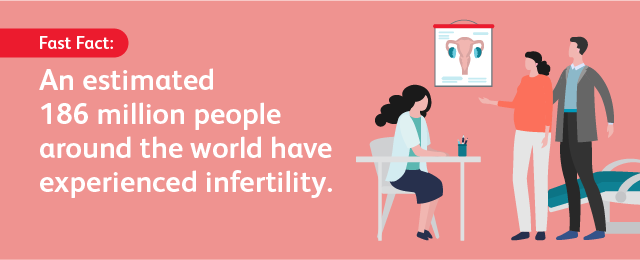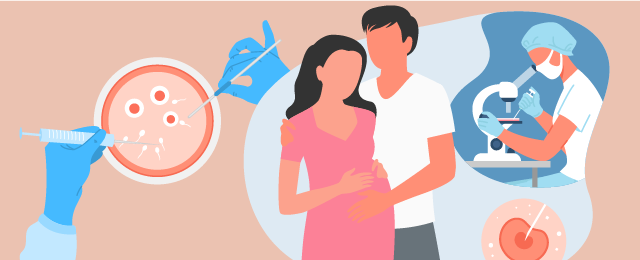
Can Air Pollution make it Harder to get Pregnant?
Written by The Health Aisle Team
Medically reviewed by Jeceli A. Nobleza, BSN-RN, MN, Registered Nurse

Air pollution can make it harder to get pregnant but there are things you can do to decrease the risk.
Infertility is a condition in which you cannot get pregnant after one year of trying.
Infertility can happen to anyone and affects millions of people globally.

People experience infertility due to many reasons, but air pollution can be a factor. It is not clear what happens in the body, but in one study of 18,000 couples in China, those living with moderately high levels of small-particle pollution had a 20 percent higher risk of infertility than others.
Small-particle pollution is a mix of tiny solid and liquid particles that are in the air we breathe.
How does air pollution affect people trying to get pregnant?
Studies on in-vitro fertilization (IVF) — a process to help people get pregnant — found it was more difficult for people to get pregnant if they were living close to major roadways with higher air pollution. The chances of the egg implanting in the uterus were less successful.

IVF is a process in which the egg is collected from the female reproductive system and fertilised with sperm in a lab to create an embryo. The embryo is then planted back into the female reproductive system.
How does air pollution affect sperm?
Studies in Taiwan and the United States have found air pollution can affect the shape and size of sperm. One study found that air pollution made it difficult for sperm to move properly.
Air pollution has also been linked to low birth weights, premature births, and a higher risk of diseases like asthma.

Can anything be done to help?
-
Think about your location. Read the air quality index, try to find places to live with less air pollution, and try to avoid living close to major roadways.
-
Get an air purifier. Indoor air pollution is also a risk factor, so air purifiers may help remove smoke, allergens, and mould.
-
Create a healthy environment. Think about the products you use including hairspray, paint, and cleaners, and try to use natural, chemical-free products. Keep the vent hood on when cooking.
You can do things to help manage your environment. Talk to your healthcare provider if you’re worried about air pollution and how it can affect your pregnancy and your baby.
References:
-
World Health Organization. (2020, September 14). Infertility. https://www.who.int/news-room/fact-sheets/detail/infertility
-
Li, Q., Zheng, D., Wang, Y., Rong, L, Hongping, W., Suxin, X., Kang, Y., Cao, Y., Chen, X., Zhu, Y., Xu, S., Chen, Z., Liu, P., & Qiao, J. (2021). Association between exposure to airborne particulate matter less than 2.5 μm and human fecundity in China. Environment International, 146, 106231. https://doi.org/10.1016/j.envint.2020.106231
-
Gaskins, A. J., Hart, J. E., Mínguez-Alarcón, L., Chavarro, J. E., Laden, F., Coull, B. A., Ford, J. B., Souter, I., & Hauser, R. (2018). Residential proximity to major roadways and traffic in relation to outcomes of in vitro fertilization. Environment International, 115, 239–246. https://doi.org/10.1016/j.envint.2018.03.029
-
Legro, R. S., Sauer, M. V., Mottla, G. L., Richter, K. S., Li, X., Dodson, W. C., & Liao, D. (2010). Effect of air quality on assisted human reproduction. Human Reproduction, 25(5), 1317–1324. https://doi.org/10.1093/humrep/deq021
-
Bosco, L., Notari, T., Ruvolo, G., Roccheri, M. C., Martino, C., Chiappetta, R., Carone, D., Bosco, G., Carrillo, L., Raimondo, S., Guglielmino, A., & Montano, L. (2018). Sperm DNA fragmentation: An early and reliable marker of air pollution. Environmental Toxicology and Pharmacology, 58, 243–249. https://doi.org/10.1016/j.etap.2018.02.001
-
Lao, X. Q., Zhang, Z., Lau, A., Chan, T., Chuang, Y. C., Chan, J., Lin, C., Guo, C., Jiang, W. K., Tam, T., Hoek, G., Kan, H., Yeoh, E., & Chang, L. (2018). Exposure to ambient fine particulate matter and semen quality in Taiwan. Occupational and Environmental Medicine, 75, 148–154. https://doi.org/10.1136/oemed-2017-104529
-
Proietti, E., Röösli, M., Frey, U., & Latzin, P. (2013). Air pollution during pregnancy and neonatal outcome: A review. Journal of Aerosol Medicine and Pulmonary Drug Delivery, 26(1). https://doi.org/10.1089/jamp.2011.0932
